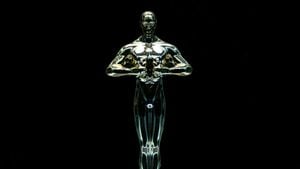HONG KONG - The trial of Jimmy Lai, the prominent pro-democracy activist and founder of the now-defunct Apple Daily, resumed with intensifying scrutiny of his actions under the city’s national security law. Attempting to clarify his stance on the allegations against him, Lai spoke passionately about his opposition to violence and his right to call for protests defending basic rights.
At 76, Lai, who holds both British and Hong Kong citizenship, has become one of the most recognizable figures facing the harsh realities of the national security crackdown imposed by China. His testimony unfolded against the backdrop of wider turmoil as Hong Kong courts recently handed down sentences to forty-five leading activists, some facing up to ten years behind bars for various offenses under the same law.
On the second day of his testimony, Lai was confronted with questions about several of his previous writings, particularly one made prior to the controversial extradition law proposal, which he linked to potential violence reminiscent of the 1989 Tiananmen Square massacre. "If the extradition law passes, we could see another June 4 massacre," he had warned. His assertion sought to evoke public sentiment and assemble crowds through his call for protests, but he maintained he did not incite hatred against the authorities, stating, "No, I didn't ask them to, you know, there's no hate here, no hatred here." This statement came as he defended himself against multiple charges related to conspiracy and collusion with foreign forces aimed at undermining Hong Kong's stability.
The inquiry turned to messages Lai sent on WhatsApp during pivotal moments leading up to the national security law. Those exchanges included references to then-President Donald Trump’s executive order aimed at sanctioning officials involved in the city's crackdown on dissidence. Lai explained he simply disseminated information about the order among friends and colleagues, emphatically denying he ever compiled or endorsed any punitive “shitlist” of officials subject to sanctions. "That would be ridiculous," he remarked, shaking his head as he recounted the events.
Throughout his testimony, Lai continuously stressed his commitment to peaceful expression. He framed his entry to journalism as motivated by a fervent belief in the “core values of Hong Kong” such as the rule of law and individual freedoms. He articulated, "The more information you have, the more you are in the know, the more you are free.” This sentiment is starkly juxtaposed by the accusation—the charge of conspiracy to collude with foreign powers could cost him his freedom, with potential life imprisonment looming.
According to Lai, his unyielding stance has never faltered: he neither sought to disrupt order nor did he collaborate with external forces to orchestrate chaos. The United States has highlighted his case as part of growing tensions between Hong Kong's stance on autonomy and how Beijing asserts control. The U.S. government has openly criticized the prosecution of Lai, calling for his immediate release, which places the entire saga as a possible friction point between U.S.-China relations, especially with the election of Trump beckoning.
While the courtroom drama reveals much about Lai, it also sheds light on the grim realities facing Hong Kong under the national security law. Imposed by Beijing, the law has been used as both a shield against dissent and a sword to pierce through the fabric of freedoms previously enjoyed by the populace.
Day by day, as activists face governmental pushback, Lai’s trial exemplifies the broader questions surrounding freedom of speech, press, and the impact of international relations on domestic governance. His high-profile situation remains at the forefront of public discourse, invoking complex emotional responses ranging from fear to resilience among supporters of the democratic movement.
Each day of testimony marks another chapter not merely for Lai, but for the larger narrative of Hong Kong's political climate. The trial is not just about one man; it's about the struggle for truth, freedom, and societal integrity within the increasingly oppressive framework sculpted by the state. The outcome might very well redefine what it means to live under autonomy and pursue justice under unswayed conviction.
With the world watching closely, Lai stands firm under pressure, making the trial one of the most consequential proceedings of our time. What transcends beyond the courtroom walls echoes through the actions of every individual willing to speak out—a call for justice, expression, and the undeniable right to dissent.



